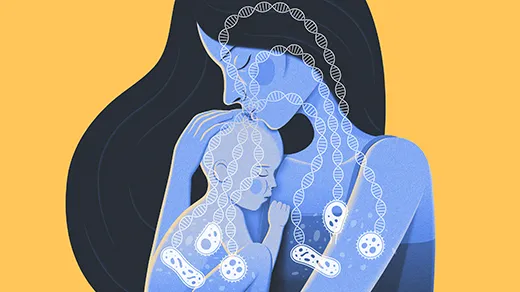Latest Articles
How the Brain Protects Itself From Blood-Borne Threats
To buffer the brain against menaces in the blood, a dynamic, multi-tiered system of protection is built into the brain’s blood vessels.
Is It Real or Imagined? How Your Brain Tells the Difference.
New experiments show that the brain distinguishes between perceived and imagined mental images by checking whether they cross a “reality threshold.”
Memories Help Brains Recognize New Events Worth Remembering
Memories may affect how well the brain will learn about future events by shifting our perceptions of the world.
Animal Mutation Rates Reveal Traits That Speed Evolution
The first large-scale comparison of mutation rates gives insights into how quickly species can evolve.
Global Microbiome Study Gives New View of Shared Health Risks
The most comprehensive survey of how we share our microbiomes suggests a new way of thinking about the risks of developing some diseases that aren’t usually considered contagious.
With Nothing to Eat Except Viruses, Some Microbes Thrive
“Virovores” — organisms that survive and multiply by eating viruses — might influence the flow of energy through ecosystems.
Mobile Genes From the Mother Shape the Baby’s Microbiome
Tiny genetic sequences in a mother’s bacteria seem to hop into the infant's bacteria, perhaps ensuring a healthy microbiome later in life.
How the Brain Distinguishes Memories From Perceptions
The neural representations of a perceived image and the memory of it are almost the same. New work shows how and why they are different.
What Causes Alzheimer’s? Scientists Are Rethinking the Answer. (Pt. 2)
If plaques of amyloid protein in the brain aren’t the root cause of Alzheimer’s disease, what is?









